Do you have a game you regularly return to, just because you like how it feels? For me, that game is Forza Horizon.
I love hopping into a car and zipping my way through Horizon’s Colorado to the tune of pulsing music and the roar of the engine. I also like zipping my way through Horizon 2‘s European fields, but lately, I’ve come to a realisation: I prefer the first game, despite the second being a better game in almost every respect. Why is that? And what makes the first Horizon such a great game?
The Forza series is broken into two parts. There are the main games, which bear the full title of Forza Motorsport. They’re racing simulators — fun, but realistic. Then there are the Horizon games, which offer more freedom. In both Horizon‘s games, the map is an open area centered around the “Horizon Festival,” a massive celebration of all things automotive. It’s basically Woodstock for cars.
Horizon limited itself primarily to the roads of Colorado. Horizon 2 opened things up significantly, providing players with a true open world.
Horizon Had Something to Prove
Horizon excited me because it presented itself as this Woodstock for racers. The game begins with lively electronic music and a radio call introducing “Darius Flynt,” the festival’s reigning champ. You’re in a Viper; he’s in a Ferrari. You race to the festival, he catches up and zips past you. It’s possible to beat him. Regardless of what happens next, the camera changes to the “real” you, watching Darius and the anonymous Viper driver race past. Your actual car is nowhere near as impressive.
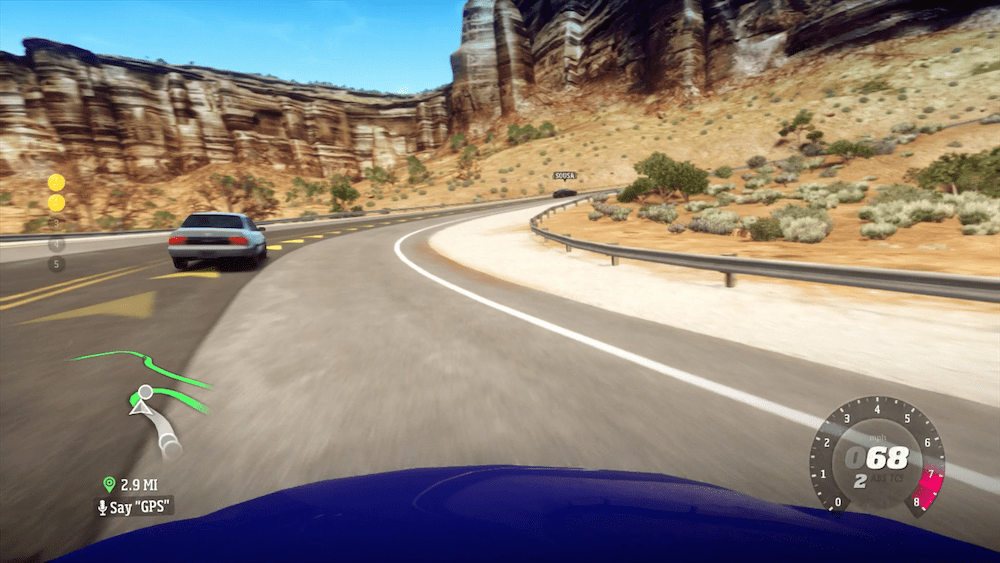
The radio urges you to get to the festival — they’re giving away the last entry wristbands, so if you want to qualify, you’ll have to hurry. What follows is a great tour through Horizon’s utterly massive map. The further you go, the more cars join you. All roads lead to the Horizon Festival, it seems, and everyone’s hoping for a wristband. There’s a sense of competitive camaraderie here that sticksaround through the rest of the game. Sure, everyone’s competing, but the festival is awesome, the vibe is great, and the appreciation of fast cars and great music is something everyone can get behind.
Getting to the festival, you manage to snag the final wristband. Alice Hart, the festival organiser, doesn’t seem to think you’ll get far, but you made it to the festival, so she’s decided to keep her eye on you. Horizon makes it very clear that you are not the champ, but a nobody. With the cheap car, Alice’s reception, and your position as you enter the festival, your place in Horizon is clear: you are the underdog.
Alright, let’s be real here: this is a racing game. Of course you’re going to be the winner, because that is how video games work. It’s how stories work. Victory for the protagonist — in games, that’s you — is almost always certain, but the best stories are the ones that make those victories feel earned regardless. Horizon’s triumph is that it makes you feel like you’re becoming a better, more popular racer with every action you take.
Horizon features two methods of progress. First, you earn wristbands, which ascend in colour from white to green to blue to purple to orange to gold. Gold races are the hardest, of course. It’s a familiar progression to most gamers who have played everything from Diablo to Destiny. The other method of progress is popularity, which you get from completing various stunts and activities in the game. Smash something? Become more popular. Drift well enough? Popularity boost! Defy gravity and go flying through the air? Yup, more popularity. The more stuff you do, the more popular you become, and as you become more popular, more people take notice of you. Completing various challenges results in a popularity and credits boost, which lets you buy more cars. It’s all tightly woven together, and more importantly, it means every action you take in the game makes you feel like you’re making a name for yourself.
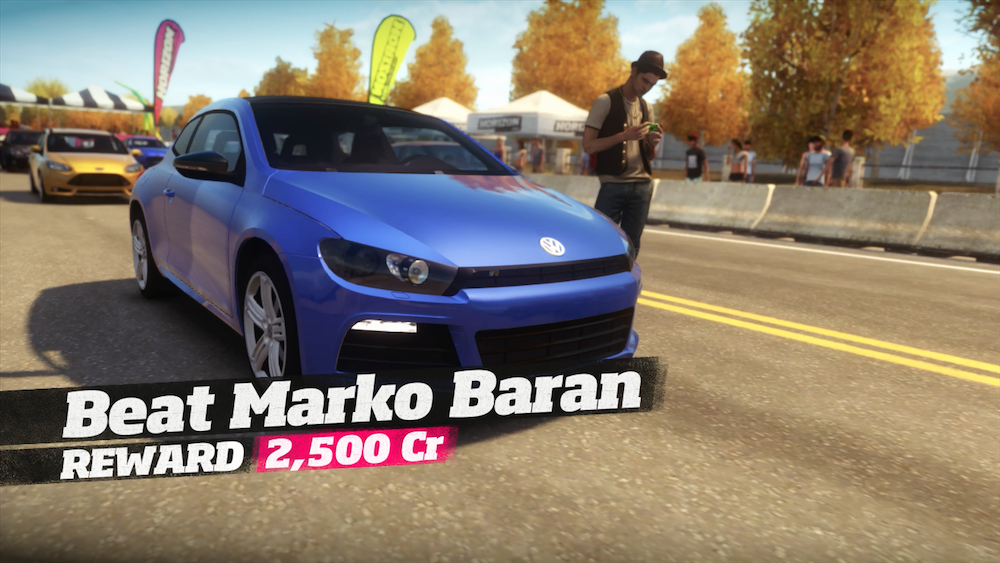
The characters in the game help as well. Every wristband tier features a new racer, whether that’s Ramona Cravache, Marko Baran, Ali Howard, or even Darius Flynt himself. They talk trash and act like you can’t possibly win against them. You can, of course, and you’ll feel more like a winner as you inevitably humble each of them. Darius in particular is such a smug jerk that beating him feels great, especially if you lost to him in that very first race. Horizon sets him up as the “villain” of the festival, and he plays the role well. He’s cocky and arrogant — he deserves to lose. None of the characters in Horizon are great on their own, but they do a good job of motivating you to want to defeat them. Baran, for instance, always takes the time to remind you that he thinks your ride is garbage.
Everything you do in Horizon makes you feel like you’re improving, like you’re turning heads, like you showed up as the underdog and walked away the champion. Every single element of the game is designed to make you feel that you’ve earned everything that came to you. You’re the John McClane of Horizon. You’re the Titans in Remember the Titans. You aren’t just the champ… you deserved to be the champ.
Along Comes Forza Horizon 2
When placed against its predecesor Horizon 2 appears to be the better driving experience. More cars! More places to go! More race types! Dynamic weather that changes up the way races handle! It makes use of the “drivatar” system introduced with Forza 5 — every player has an avatar that learns from the way they drive, and this avatar is shared to other players around the world — and it seems to work. Horizon 2 adds seamless online multiplayer, a great built-in photography system… and a fantastic open world.
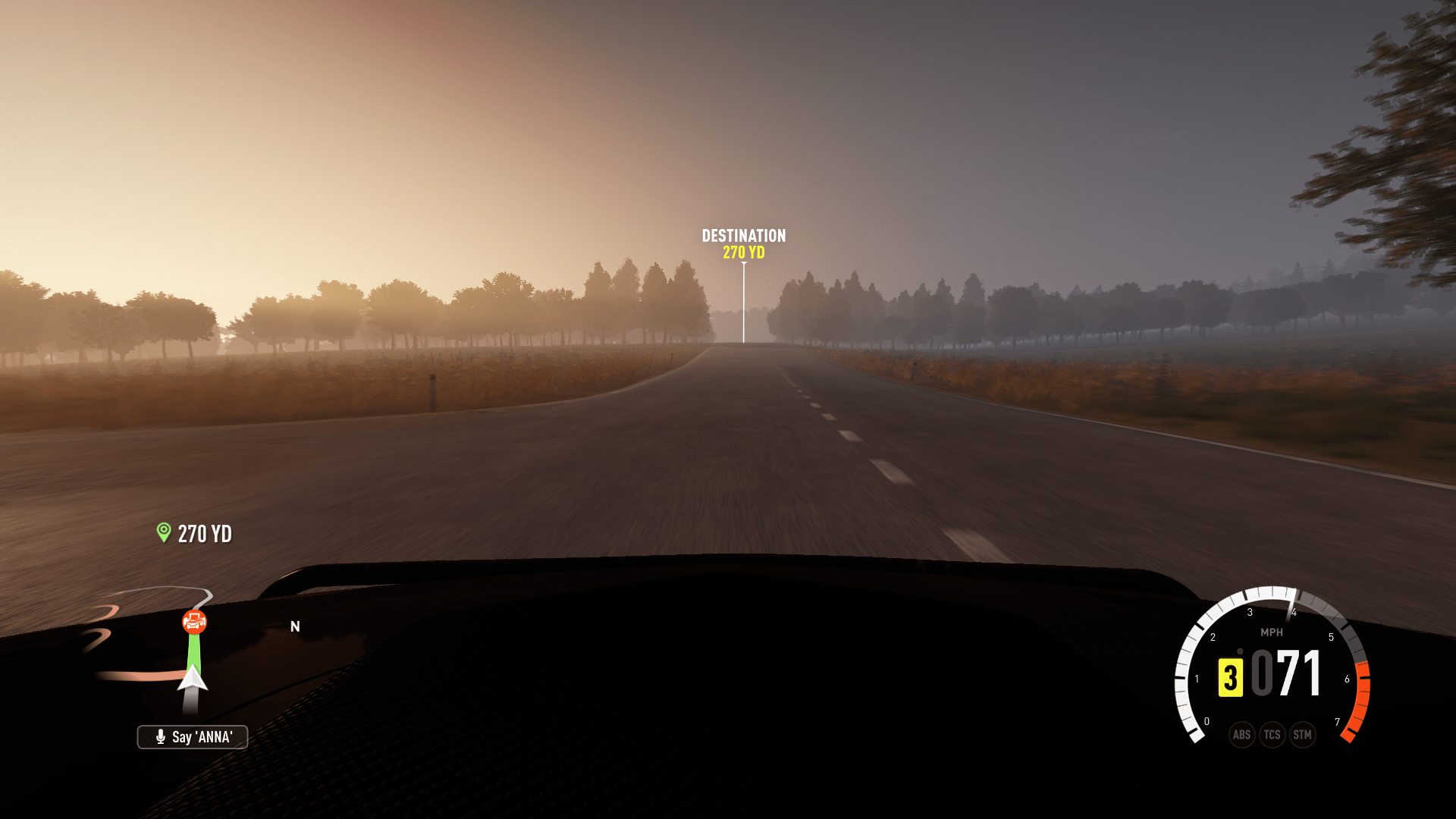
Horizon 2‘s Horizon festival takes place amid the rolling fields and cliffside highways of the region bordering southern France and northern Italy. It is, without a doubt, the best open racing map I’ve ever seen. There is nothing like skidding across grass, leaping through the air, landing on a road and roaring down it at breakneck pace.
In terms of back-of-the-box bullet points, Horizon 2 has a lot going for it. So why do I like the first game better?
When I play Horizon 2, I feel like it’s keeping me at arm’s length. I feel like it doesn’t really want me to celebrate the joy of automobiles, like it doesn’t really want to put me in the Horizon festival. The first Horizon aspired to all of those things, but the sequel wants to be a game and nothing more than that.
Horizon 2 begins with this silly car commercial of a video.
You are then introduced to Some British Guy, whose name is not important, who pops you in some super expensive car and asks you to drive down the coast to the Festival. No matter what you do, this guy always seems confident that you are great and special and awesome. It’s like showing up in a bad RPG as “the chosen one.” You’re the chosen one, so it’s obvious you’re going to take home the crown. This guy already trusts you with a Lamborghini, after all.
You are then basically told to complete a bunch of championships and take home the crown. For some people, the simple act of “win the thing” might be enough. At every opportunity, Horizon 2 tells you how great you are. When you find a rare car in a garage, Attractive Young Mechanic Woman tells you how amazing you are for finding the car.
Horizon 2 is an exercise in constant backpattery, and as such, nothing ever feels special or earned. The driving itself is fun, but the motivation to actually win Horizon festival… not so much. Horizon 2 is a huge game — I bought it on release a year ago, but I still haven’t beat it. Truth be told, I’m not that interested. I’ll boot it up every few days to zip around its world for the sheer fun of driving, but I have no motivation to complete it.
The festival nature of the game has been toned down — to begin a race, drive to a spot on the map. Nothing is there except a floating UI prompt that says to press a button to begin the race. No tents, no crowds, no signs of a festival, just a UI prompt. Gone is the first game’s popularity system as well. Now you have two different XP systems. One takes you up in rank based on XP you earn, granting you slot machine-like prize spins whenever you level. The other seems to be based on stunts you perform and XP you get from that — this unlocks a series of 25 mostly-uninteresting perks.
Forza Horizon’s popularity system didn’t do anything other than make you feel like you were becoming more popular, but at least it made sense. Horizon 2’s two upgrade systems, in comparison, are bland and poorly differentiated from each other. Despite this, progression through the festival is simplistic. Complete a series of events, move on to the next series of events. There’s no tangible progress being made. You’re not climbing the ranks of popularity, and wristbands don’t seem to do anything. You unlock perks, and that’s about it. Rather than placing you in the festival, Horizon 2 takes a step backwards and acts like any other game with a progression system.
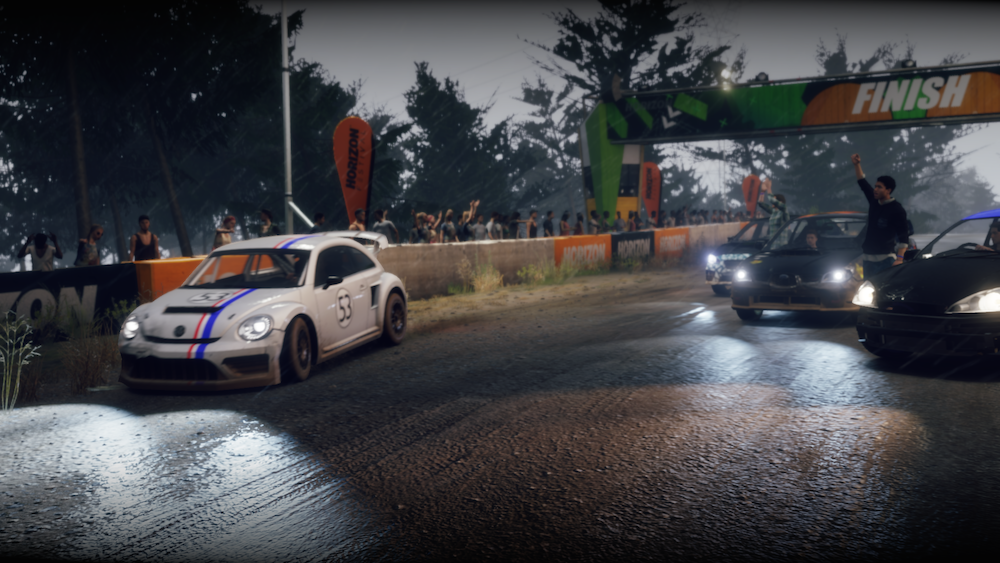
Furthermore, the characters are gone. I couldn’t tell you much about Smarmy British Guy other than that he’s probably rich and seems to believe in me unflinchingly. In Horizon 2, you’ve become like Steven Seagal, an action hero who’s boring because he can never fail, because his victory is inevitable. You’re going through the motions with no real investment, because the outcome is a given.
It might have been ok if you were racing against people, but you’re not. You’re racing against drivatars. There’s no Darius Flynt to want to beat, and no Ali Howard to impress in the probably-not-legal underground races (Horizon’s more intense ‘underground’ night races, which are missing from Horizon 2). Instead, you’re racing against a computer-generated AI version of xX420dopeman024Xx, and even if you and he are good friends, the whole thing generally ends up feeling hollow.
The Importance of Presentation
Mechanics define how a game plays in a concrete sense. What happens when we press buttons is important to whether or not the game is fun. The differences between Horizon and Horizon 2 prove that mechanics aren’t everything. Context is important too.
Games are about one thing and one thing only: doing. Players must be able to act. The thing is, most of us do things for a reason. We go into Destiny’s raids because we want to get loot. We take on foes like Frau Engel and Darius Flynt because they have done horrible things to us and we want to see them lose. We act because we want something. We act because we have the motivation to do so.
Forza Horizon established a goal, then dedicated every system in the game — even the simple act of driving your car through a bunch of signs before pulling off a perfect drift — to attaining that goal. It contextualized everything and made us want to become champions. It created a world for us to exist in and said “now go do something awesome!”
Horizon 2 does none of that. It tells you that eventually you’ll win, so in the meantime, just go drive around and complete a bunch of checklists while following an unclear upgrade path. Horizon 2 failed to establish a compelling world, and as a result managed to be nothing more than a simple racing game. It’s a very good racing game, but it just wasn’t as special as its predecessor.
GB Burford is a freelance journalist and indie game developer who just can’t get enough of exploring why games work. You can reach him on Twitter at @ForgetAmnesia or on his blog. You can support him and even suggest games to write about over at his Patreon.
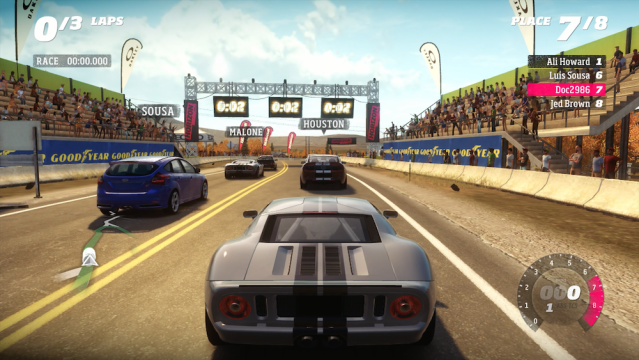
Comments
12 responses to “I Keep Going Back To The First Forza Horizon”
I keep coming back to Call of Duty. I don’t play multi player, but every year I enjoy the campaign, and keep the game installed until the next COD comes out, so that I can do the odd level here and there when I feel like it. Looking forward to November 6th.
There was a rumor that Horizon 3 or Horizon 2 dlc is going to be set in Australia.
Nice write up, never played the Forza games but I found this article informative and interesting none-the-less.
Path of Exile
Horizon was great besides not being able to tune, I want adjustable ride height and camber!
Both are very solid games though, great fun to just cruise around. I’d recommend both to any Xbox owning car fans.
Bastion
TF2
Master of Orion 2. I have been playing it regularly since ’97 – no other space-based 4X has come close since.
Half Life 2 – pay through it every 12 months or so. Probably my favourite story in an FPS.
Dota 1/2. Been playing around 10 years… every now and again I think ‘this is it, it’s finally time to quit’… and every time without fail I get sucked back in.
Mass Effect 2 – like a warm, sci-fi blanket.
To me, FH2 is so much better than the first, but it lacks the character that the first game had, as well as the killer soundtrack.
Burnout Revenge. I’m not big into racing games, but for me that hit the perfect balance between wanton destruction and strategic maneuvering (Burnout Paradise, in comparison, was rubbish).
i found the wristband characters annoying, there was nothing more immersion killing than starting a race and hearing one of four “taunts” that were so generic that they made them feel like they were children. the start of every race was me mashing A even thought you couldnt skip the cut scenes. i whole heatedly agree with everything else though. i feel that the festival vibe should have been played up more, maybe set you as the defending champion who has returned to defend the title from the roots they came from, maybe even had rising stars who were a half step ahead in difficulty.